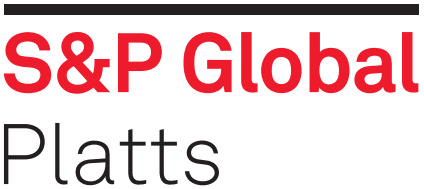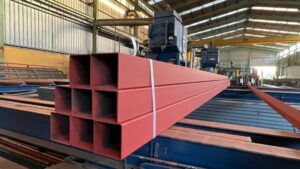
Germany’s anti-trust authority has imposed a combined Eur646 million ($718 million) in fines on German plate producers Ilsenburger Grobblech GmbH, Thyssenkrupp Steel Europe AG and Austrian plate mill Voestalpine Grobblech GmbH for agreeing price supplements and surcharges for quarto plates, the body said Thursday in a statement.
The agreement took place from mid-2002 until June 2016, according to the anti-trust authority.
German plate maker Dillinger Huttenwerke, which also participated in the agreement, was the first company to cooperate with the authorities and was granted full immunity from the fines.
“The steel manufacturers regularly met in the so-called ‘Technikerkreis’ [technical working group] of the Walzstahl-Vereinigung [Rolled Steel Association] and agreed on the most important price supplements and surcharges for specific quarto plates in Germany. In the subsequent years until mid-2016 the companies continued to calculate these price components according to the uniform models agreed on or adopted them in coordination with one another,” according to Andreas Mundt, president of the anti-trust authority.
The fining decisions are not yet final and can be appealed, along with their findings, to the Dusseldorf higher regional court.
Quarto plates are flat steel products, used in particular in steel construction, bridge building, building construction, shipbuilding, boilers and pressure vessels, general mechanical engineering, wind tower and pipeline construction, as well as in the offshore industry.
The anti-trust office said the price of quarto plates traditionally consisted of a base price, which was individually negotiated with the customer and various price supplements and surcharges for scrap and alloys. The price supplements were charged for certain quality characteristics such as high strength or toughness and additional services in production. The sector-wide price supplements and surcharges accounted for around 20-25% of the total price of quarto plates and were listed and published in the price lists of the quarto plate manufacturers concerned until the middle of 2016.
Making provisions
A Thyssenkrupp spokesperson told Platts that the company had made provisions of Eur370 million beforehand, which matched the amount of its fine.
Salzgitter, which owns plate maker Ilsenburger Grobblech, confirmed to S&P Global Platts that it had been imposed with a fine, highlighting that its base prices have not been part of the investigation. The company did not disclose how much it had been fined.
In a statement Thursday, Voestalpine confirmed its involvement and said it consented to a settlement with the German anti-trust authority for a fine of Eur65.5 million. The company also said that “former and current members of the management board of Voestalpine AG were neither involved in this matter and nor were they aware of it. As part of the process of assessing the facts, Voestalpine has already reduced its association memberships to the minimum necessary and established restrictive regulations for participating in association meetings and events.”
— Annalisa Villa, Laura Varriale




